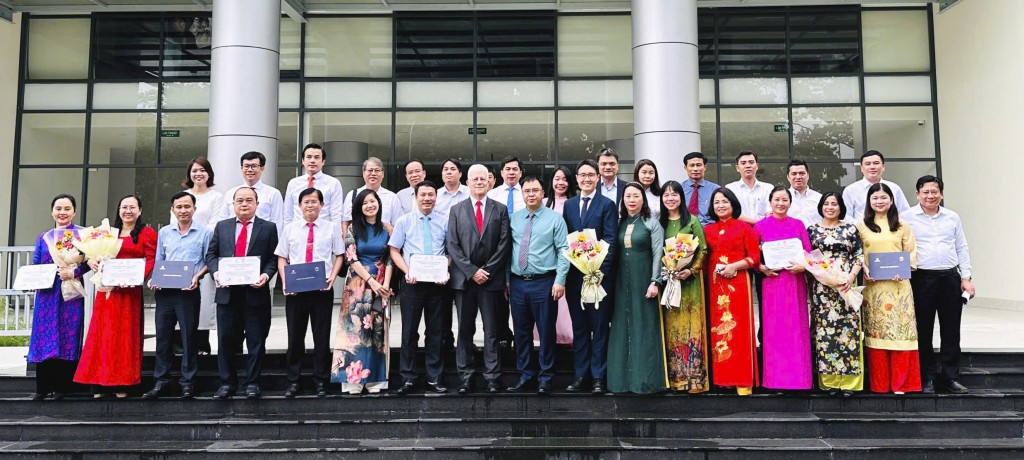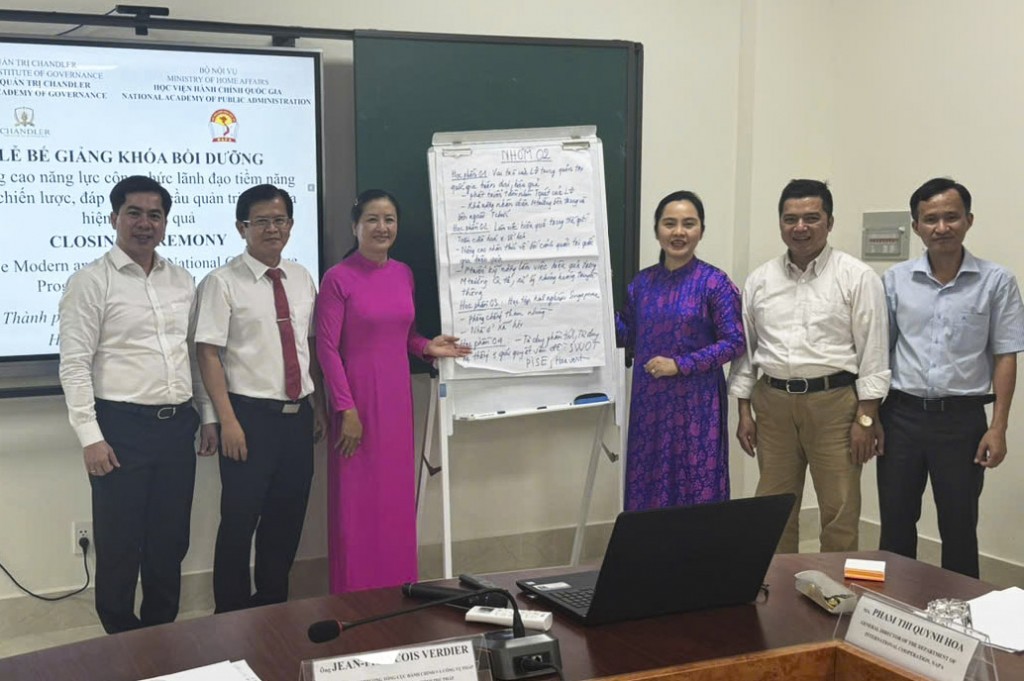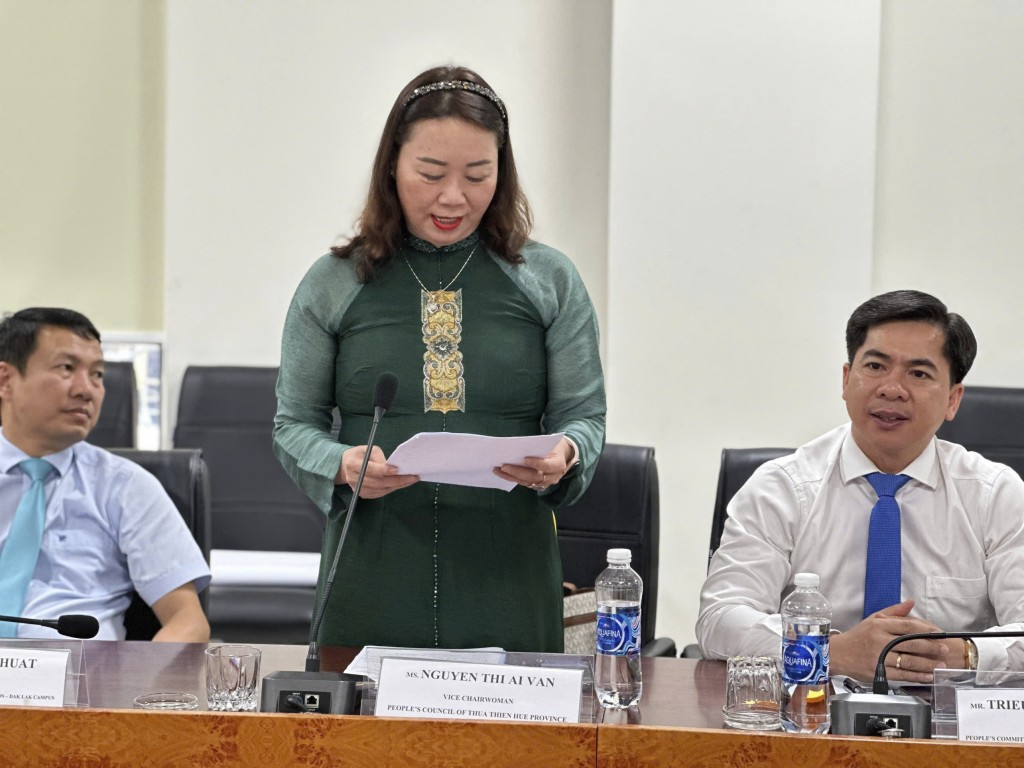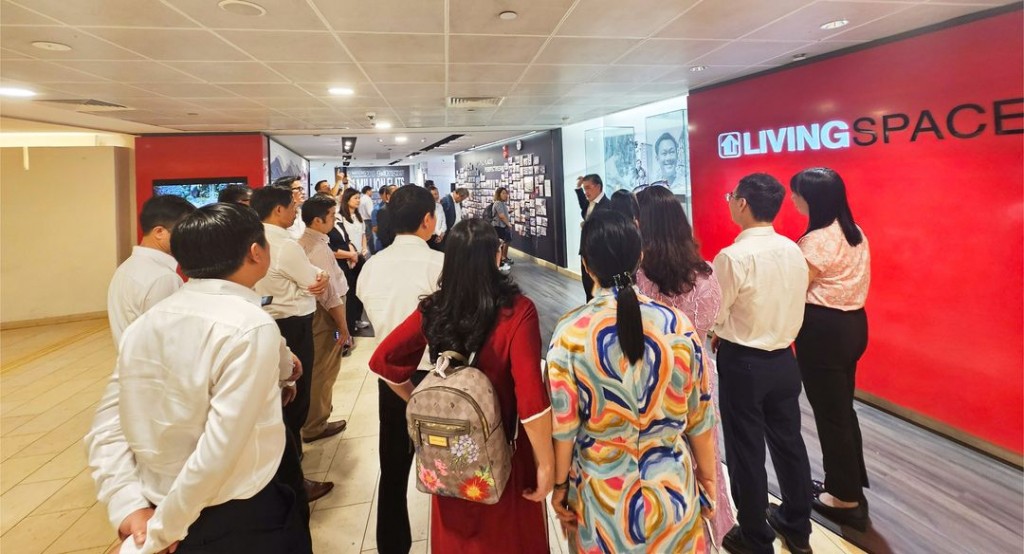
Participants visited the LIVINGSPACE gallery at the Housing Development Board (HDB) to explore Singapore’s public housing journey and learn about HDB’s innovative and creative approach to building communities and housing a nation.
23 senior Vietnamese public sector leaders have successfully completed the Modern and Effective National Governance Programme for Emerging Leaders (MENGPEL), which ran from July to September 2024. Now in its third iteration, this programme is a joint collaboration between the Chandler Academy of Governance (CAG) and the National Academy of Public Administration (NAPA) of Vietnam. Designed especially for public sector leaders in the national and provincial governments, MENGPEL aims to impart critical knowledge and skills, and share good practices in national governance.
Programme Overview
MENGPEL, structured into four segments, was specifically designed to address the unique needs of Vietnam while integrating international good practices from Singapore and beyond.
In addition to Ho Chi Minh City and Singapore, where the programme was held, the participants also went on field trips to Binh Duong and Tay Ninh provinces, allowing them to explore local good practices and understand the diverse governance landscapes within Vietnam.
Programme Highlights
Segment 1: Leadership for Modern and Effective National Governance
Held from 1 to 5 July 2024 in Vietnam, the first segment emphasised the essential role of modern and effective governance in driving national development. Participants engaged in discussions on the principles, priorities and the public service’s role in promoting good governance. The segment also covered personal leadership styles, change management, emotional intelligence and communication skills, aiming to strengthen leadership and management capacity in Vietnam’s public sector.
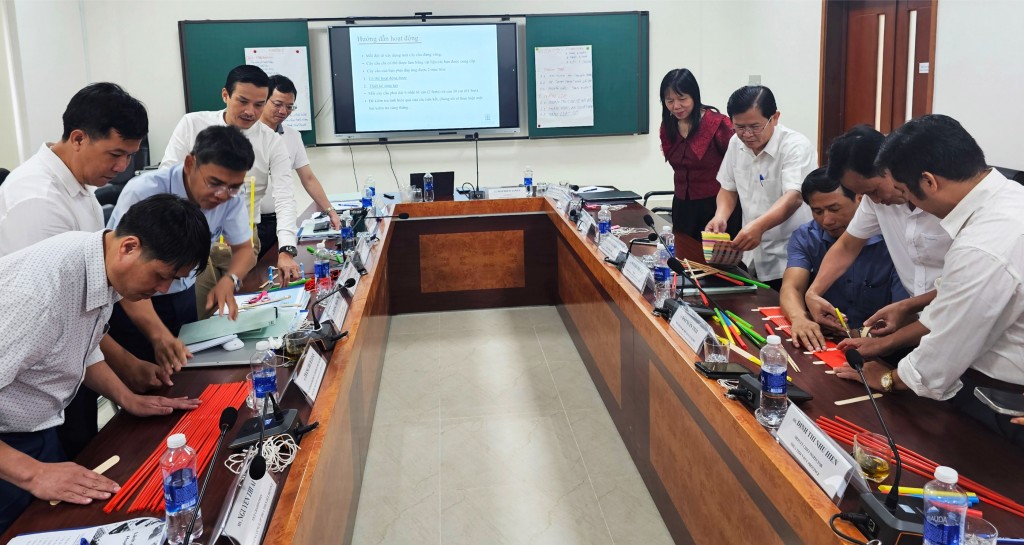
Participants engaged in a change management activity to understand leaders’ roles in planning, driving, and communicating organisational change.
Segment 2: Operating Effectively in an International and Digital Environment
From 22 to 26 July 2024, the second segment held in Ho Chi Minh City centered on enhancing participants’ capabilities to operate more effectively in international and digital environments. Discussions covered digital transformation in the public service, strategic communication, and partnership building. Participants also examined how digitalisation can enhance public service delivery. As part of this, they visited the Intelligent Operations Center (IOC) in Binh Duong province to understand how AI and digital systems can help governments in policy implementation and service delivery.
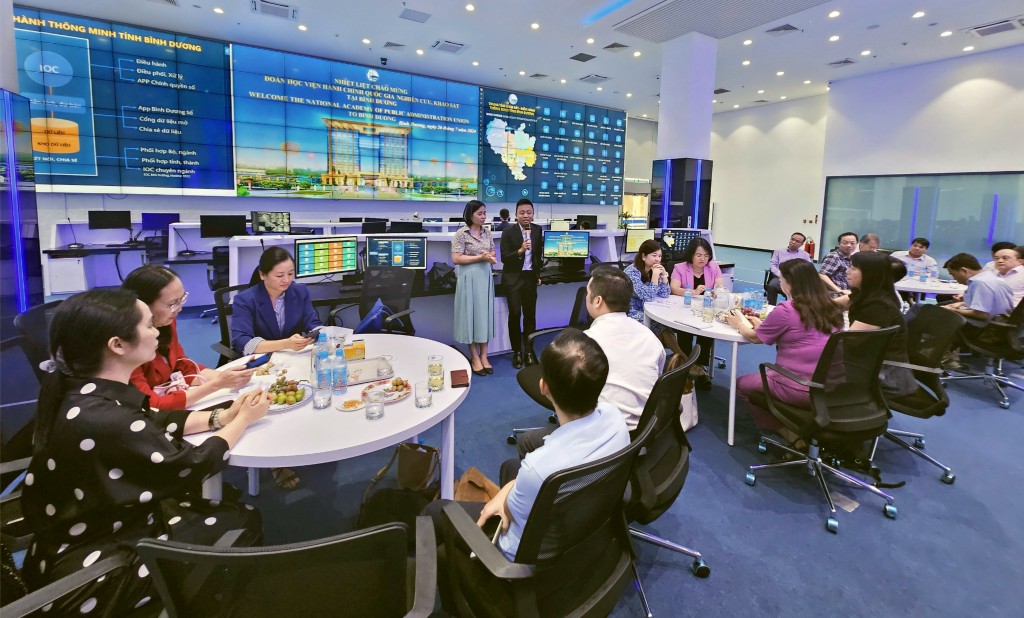
Participants visited the Intelligent Operations Center (IOC) in Binh Duong and experienced firsthand how advanced AI and automated systems streamline traffic management, boost public security, and support environmental monitoring.
Segment 3: Building Strong Institutions and Systems
Taking place in Singapore from 19 to 23 August 2024, the third segment explored the theme of building strong government institutions and systems. Participants engaged in expert-led discussions on Singapore’s governance principles and key policies, in areas such as public housing, human resource management in the public sector, and building cultures of integrity. This segment also featured learning journeys to Singapore’s residential heartlands, the Housing and Development Board (HDB), Marina Barrage and industrial parks, enabling participants to observe the implementation of economic and social development policies on the ground.
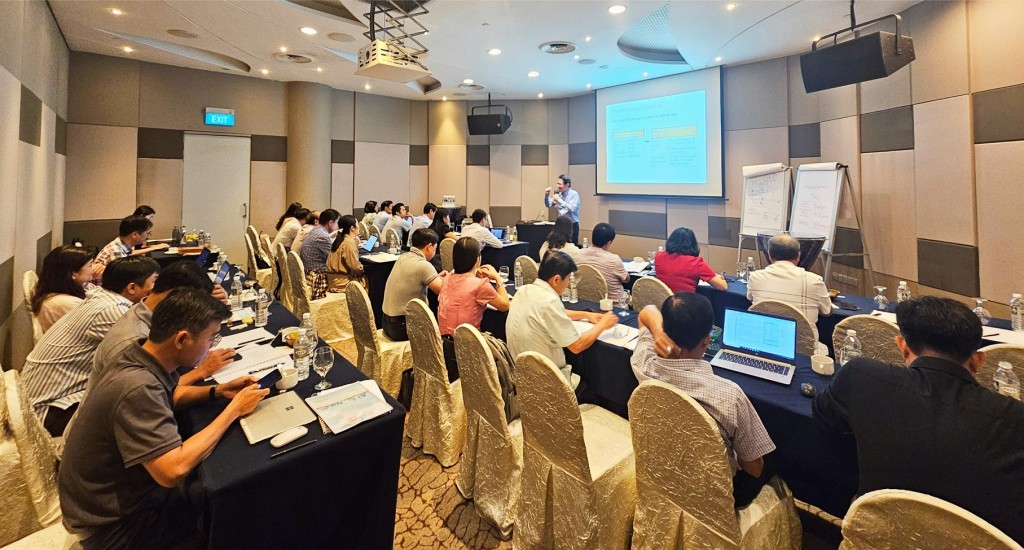
Mr. Derek Tan, CIG expert, facilitated a discussion on Human Resource Management in the public sectors of both Vietnam and Singapore, focusing on challenges, and comparing key differences and approaches.
Segment 4: Analytical and Systems Thinking Skills in Effective Problem Solving
The final segment, held from 9 to 13 September 2024 in Vietnam, focused on enhancing skills in policy and programme design. Participants were introduced to various analytical tools for addressing policy challenges and formulating effective solutions. During a visit to Tay Ninh province, they engaged with local government officials on issues such as tourism development, economic zone development, and pollution management. This hands-on experience allowed participants to gain a deeper understanding of the complexities and trade-offs involved in policy design. They had the opportunity to apply the tools and techniques learned throughout the programme, to develop policy recommendations for the Tay Ninh government.
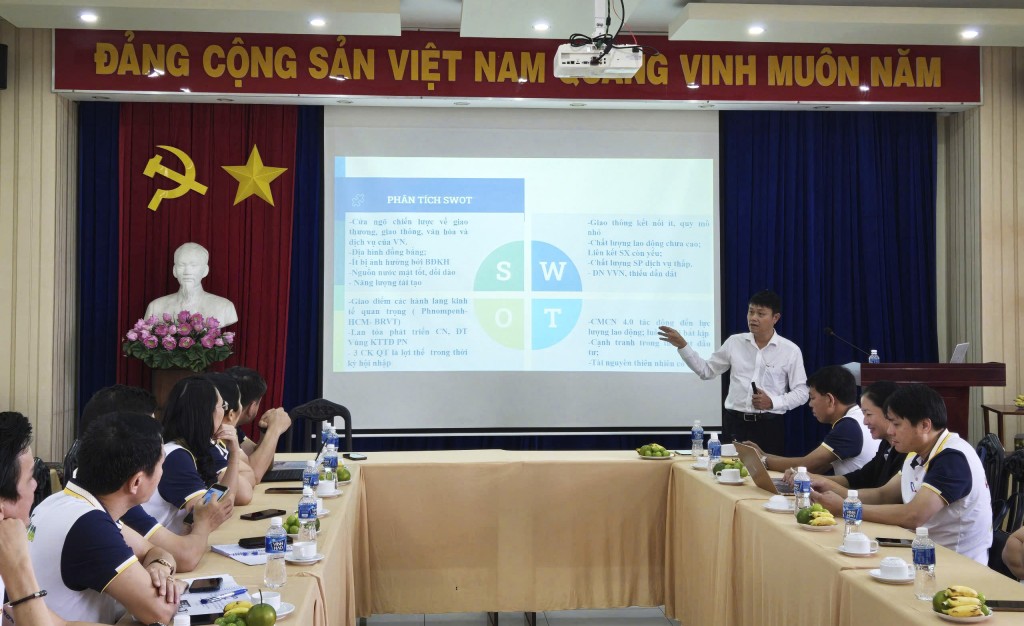
Participants visiting the Ministry of Planning and Investment in Tay Ninh to discuss tourism development, economic zone development, and pollution management as part of their capstone project.
MENGPEL continues to offer participants a platform to address emerging public governance challenges together. It remains impactful by equipping leaders with essential skills in governance, leadership, policy design, and digital transformation through experiential learning methods such as role-playing, simulations, games, and field trips.
Representing the class at the closing ceremony, Ms Nguyen Thi Ai Van, Chairman of the Vietnam Fatherland Front and Vice Chairman of the People’s Council of Thua Thien Hue province said:
“Throughout the programme, we had the invaluable opportunity to observe and learn from best practices in various locations across Vietnam, including Ho Chi Minh City, Binh Duong, and Tay Ninh, as well as internationally during a study visit to Singapore, widely regarded as a model of development. These experiences gave us a fresh perspective on the role of public leaders in today’s evolving governance landscape, equipping each of us with the insights needed to effectively apply what we’ve learned to our respective roles and local contexts.
One of the most valuable aspects of this course is how it has served as a bridge, bringing the 23 of us together to exchange ideas, interact, and learn from one another. It has created a unique opportunity for us to build lasting connections, both professionally and personally, fostering a network of support that will continue beyond the programme.”


